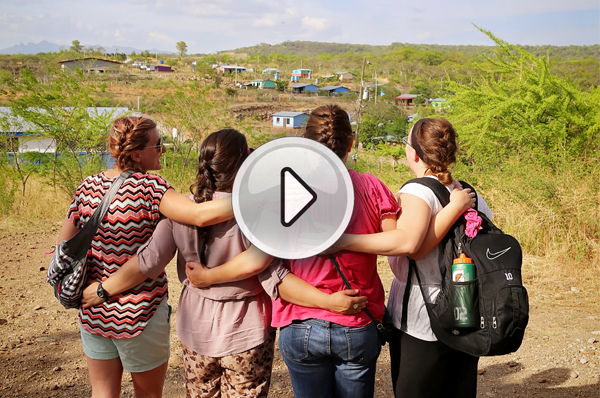Find a Global Perspective at McKendree University
Immerse Yourself
Discover the link between you and the lives of those around the world! Join students,
faculty, staff, parents, and alumni to experience a whole new global perspective:
![]() Step Outside of Your Comfort Zone
Step Outside of Your Comfort Zone
![]() Develop Self-awareness
Develop Self-awareness
![]() Challenge Yourself
Challenge Yourself
![]() Learn the Benefits of Another Culture
Learn the Benefits of Another Culture
![]() Realize How Privileged You Are
Realize How Privileged You Are
![]() Relate to People in the World
Relate to People in the World
Explore Nicaragua
As a Bearcat, you'll have opportunities to explore our world!
![]() Learn the shared history of the U.S. and Nicaragua
Learn the shared history of the U.S. and Nicaragua
![]() Study social, political, economic, faith and social justice issues
Study social, political, economic, faith and social justice issues
![]() Take a historical tour through the capital city of Managua
Take a historical tour through the capital city of Managua
![]() Attend a church service
Attend a church service
![]() Tour a sweatshop
Tour a sweatshop
![]() Visit an after-school arts and educational program for low income youth
Visit an after-school arts and educational program for low income youth
![]() Talk about social justice with American citizens living in Nicaragua
Talk about social justice with American citizens living in Nicaragua
![]() Work at a home for youth and adults with mental and physical disabilities
Work at a home for youth and adults with mental and physical disabilities
![]() Visit the colonial town of Granada
Visit the colonial town of Granada
![]() Experience Apoyo Lagoon
Experience Apoyo Lagoon
![]() Zip-line through the wilderness
Zip-line through the wilderness
![]() Explore rural Nicaragua
Explore rural Nicaragua
Reflect on the Experience
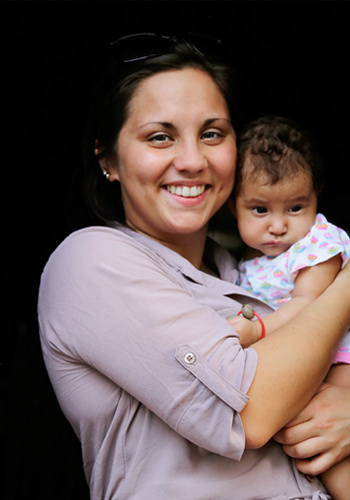 Samantha Fagerburg ’17:
Samantha Fagerburg ’17:

Major: Business Administration
Hometown: Morton, Illinois
"I saw how selfless people in Nicaragua are and seeing that makes me want to be more like them. I learned that I am very privileged in the States and even though I am a college student and don’t have much, I still have much more than they can even imagine. I don’t notice when I am home how privileged I am, but entering Nicaragua I came to that realization."
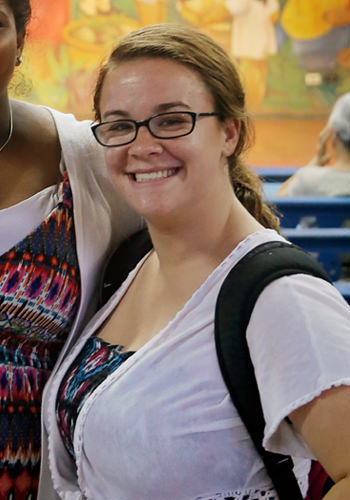 Chandler Airaghi ’18:
Chandler Airaghi ’18:
Major: Health & Wellness
Hometown: St. Louis, Missouri

"This experience opened my eyes to how the world actually is. I’d never been out of
the country before. Seeing a different side of life really opened my eyes to everything.
I was already appreciative of everything I have but now I’ll be extra appreciative.
I guess I kind of grew in my faith a little bit while I was here.
This trip has opened my eyes to my world in comparison to other worlds. The fact that
I have running water and I can get water out of a faucet, just those little things
I won’t take for granted anymore. And just sharing with other people how they are privileged, that they have things
that other people don’t have."
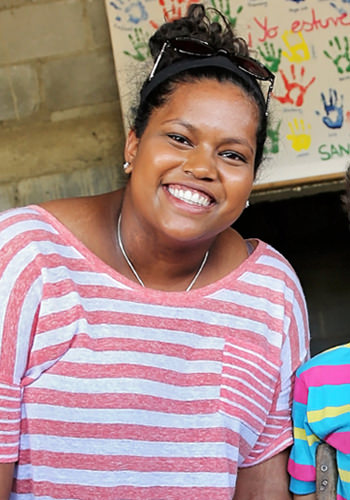 Hannah Dean ’18:
Hannah Dean ’18:

Major: Psychology
Hometown: Normal, Illinois
"I don’t think you can go to another culture and just be a tourist and get anything
from it to change your heart and change your mind. When you are immersed into another
culture, you see how other people live, how they eat. I feel it is very important
to open our eyes and expand our horizons.
This trip is going to impact me in the future immensely. I have tendency to judge
a book by its cover. This trip has opened my eyes. You don’t know everything about
a person so you can’t judge them. You need to listen to their story and what they
need to say and if you have questions, you need to ask them. Be open to being vulnerable
and asking hard questions, and get to know people.
This trip definitely pushed me to live outside my comfort zone, which is becoming
a common theme in my life these days. One thing I try to keep in mind that I’ve definitely
implemented here is everything you’ve ever wanted is right outside your comfort zone—which
is a beautiful place where nothing grows."
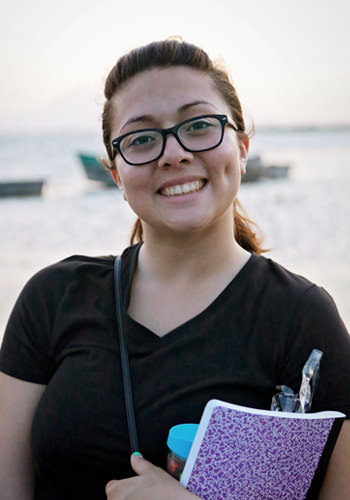 Yatzia Montero ’17:
Yatzia Montero ’17:
Major: Sociology - Social Work
Hometown: Berwyn, Illinois

"I wanted to immerse myself in an environment that I really didn’t understand before and open my mind to why I believe the things I do... This trip helped me understand people who are impoverished but are happy."
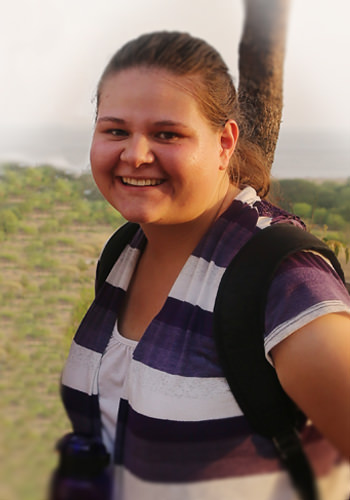 Tori Cook ’15:
Tori Cook ’15:
 "One of my future career goals is to work with Spanish-speaking immigrants and their
communities in the United States. Many of their most prevalent issues, such as gender
inequality, teen pregnancy, and poverty, also turned out to be the focus of many organizations
in Nicaragua. It was incredible to learn exactly what types of interventions people
within these communities were implementing, and it kind of felt like I was going straight
to the source. Overall, this trip taught me how to incorporate other cultural aspects,
on top of language, into potential psychological treatment. It also gave me a much
greater appreciation for the privilege many people in the world are born into that
others are not."
"One of my future career goals is to work with Spanish-speaking immigrants and their
communities in the United States. Many of their most prevalent issues, such as gender
inequality, teen pregnancy, and poverty, also turned out to be the focus of many organizations
in Nicaragua. It was incredible to learn exactly what types of interventions people
within these communities were implementing, and it kind of felt like I was going straight
to the source. Overall, this trip taught me how to incorporate other cultural aspects,
on top of language, into potential psychological treatment. It also gave me a much
greater appreciation for the privilege many people in the world are born into that
others are not."
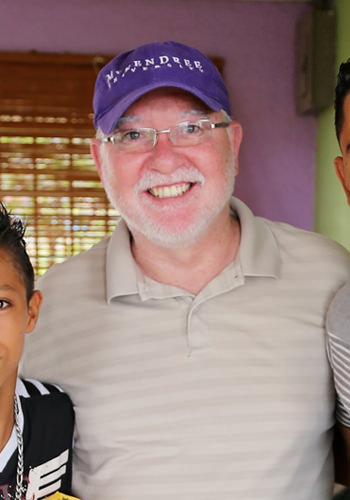 Rev. Tim Harrison, chaplain and director of church relations:
Rev. Tim Harrison, chaplain and director of church relations:

Center for Faith & Spirituality
"Immersion calls us to go deeper than sometimes service and mission opportunities
afford. I think our culture is a in a “do” mode; we often want to do things for other
people. Immersion is really more about being… It’s really about going alongside and
learning and connecting to and engaging in relationship building. It is much more
internal than it is external. It’s about learning to grow within ourselves and learning
how we can grow in relationship with others who live in other parts of the world…
people we’ve never met, strangers. Yet we found as we talked to them throughout the
week, that there are a lot of similar issues we deal with all the time, regardless
of where we’re located. It’s about listening and learning and growing to value and
respect other people.
Accompaniment, which is a part of what we were trying to accomplish in the immersion
trip, is a costly act. It’s not just about painting somebody’s fence or building somebody’s
house and then walking away and it’s done. Accompaniment requires us to continually
build that relationship, not just in one day or one week, but over a course of time.
That’s the harder challenge for us as a group - to think about how we can build bridges
on a long-term basis. That’s why I believe immersion is even more demanding than certain
kinds of mission and service opportunities."
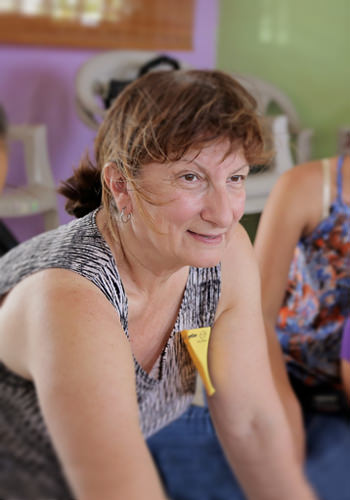 Dr. Karan Onstott, associate professor of health promotion and wellness:
Dr. Karan Onstott, associate professor of health promotion and wellness:
 "I was interested in taking a group of students to Central American countries to investigate
and learn more about their health care systems. Dr. Wiegmann and I are planning to
take a trip to Africa next spring and this gives us an opportunity to see how a student
led trip went. A lot of what we talk about in my global health class has been reinforced
from this trip. I gained new knowledge, a new understanding and also new contacts
that I hope I can tap into in the future to bring into the classroom.
"I was interested in taking a group of students to Central American countries to investigate
and learn more about their health care systems. Dr. Wiegmann and I are planning to
take a trip to Africa next spring and this gives us an opportunity to see how a student
led trip went. A lot of what we talk about in my global health class has been reinforced
from this trip. I gained new knowledge, a new understanding and also new contacts
that I hope I can tap into in the future to bring into the classroom.
The most impactful thing for me was the home stay. There were a lot of aspects about
that that made an impact. I appreciate what had and what they did with what they had…
and how quickly we could interact. We have seen people do so much with so little."
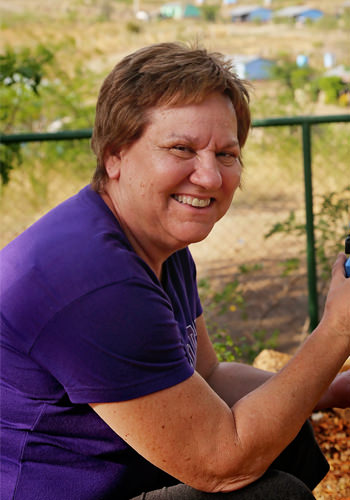 Dr. Janice Wiegmann, RN, professor of nursing:
Dr. Janice Wiegmann, RN, professor of nursing:
"You have to begin to know people and feel a little comfortable with them before you
can do for them. Even in a different part of the world, people have the same issues
- such as reproductive issues and domestic violence - but because of limited resources,
they aren’t able to handle them in the same way.
I definitely can take back from here to add to my classes about life in other countries,
family life, the health system, the health problems that people have and how they
deal with them. It will help me the most in my global health classes, the health classes,
and possibly the family health class."
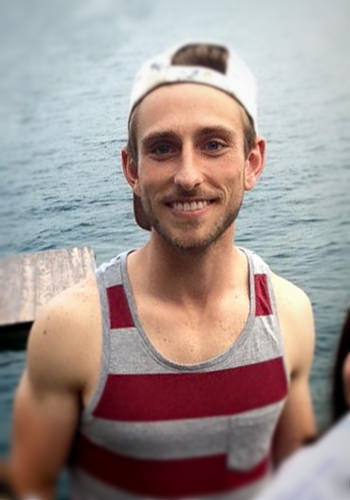 Nate Luber, digital asset coordinator, university communications and marketing:
Nate Luber, digital asset coordinator, university communications and marketing:
University Communications & Marketing
 "I believe this experience changed me by giving me a broader perspective on the world.
I think sometimes I get too caught up on the small things in life and forget about
the bigger picture. It has helped me reevaluate what I believe to be important."
"I believe this experience changed me by giving me a broader perspective on the world.
I think sometimes I get too caught up on the small things in life and forget about
the bigger picture. It has helped me reevaluate what I believe to be important."
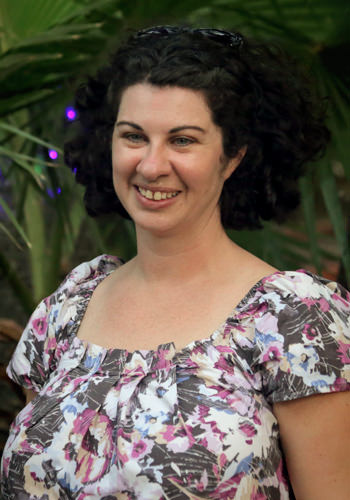 Julie (Franklin) Haupt ’99:
Julie (Franklin) Haupt ’99:
 "The fact that the Alumni Office extended the invitation to this trip says that McKendree
values its graduates, the people who have invested time and resources to the institution
and gone on with their lives.
"The fact that the Alumni Office extended the invitation to this trip says that McKendree
values its graduates, the people who have invested time and resources to the institution
and gone on with their lives.
It’s such a rich experience to learn a new language, to see another part of the world
and to recognize that you can relate to people that grew up very different from you
and to make a connection - it’s incredibly valuable."
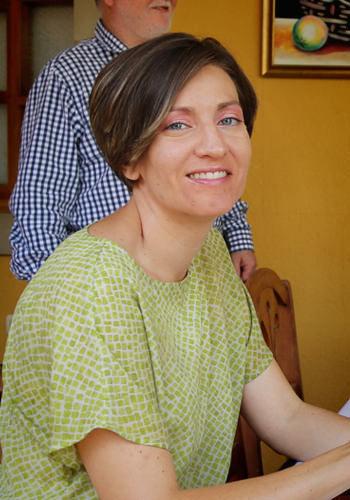 Kate (Wiegmann) Ripperda:
Kate (Wiegmann) Ripperda:
 "I will definitely use this experience in the classroom because when I teach young
people the Spanish language, it all comes back to being able to draw on personal experiences
and use pictures that of myself and people I know, in the classroom. I have been to
Nicaragua, I have been to their house, I have shared meals with them."
"I will definitely use this experience in the classroom because when I teach young
people the Spanish language, it all comes back to being able to draw on personal experiences
and use pictures that of myself and people I know, in the classroom. I have been to
Nicaragua, I have been to their house, I have shared meals with them."
Make It McKendree
